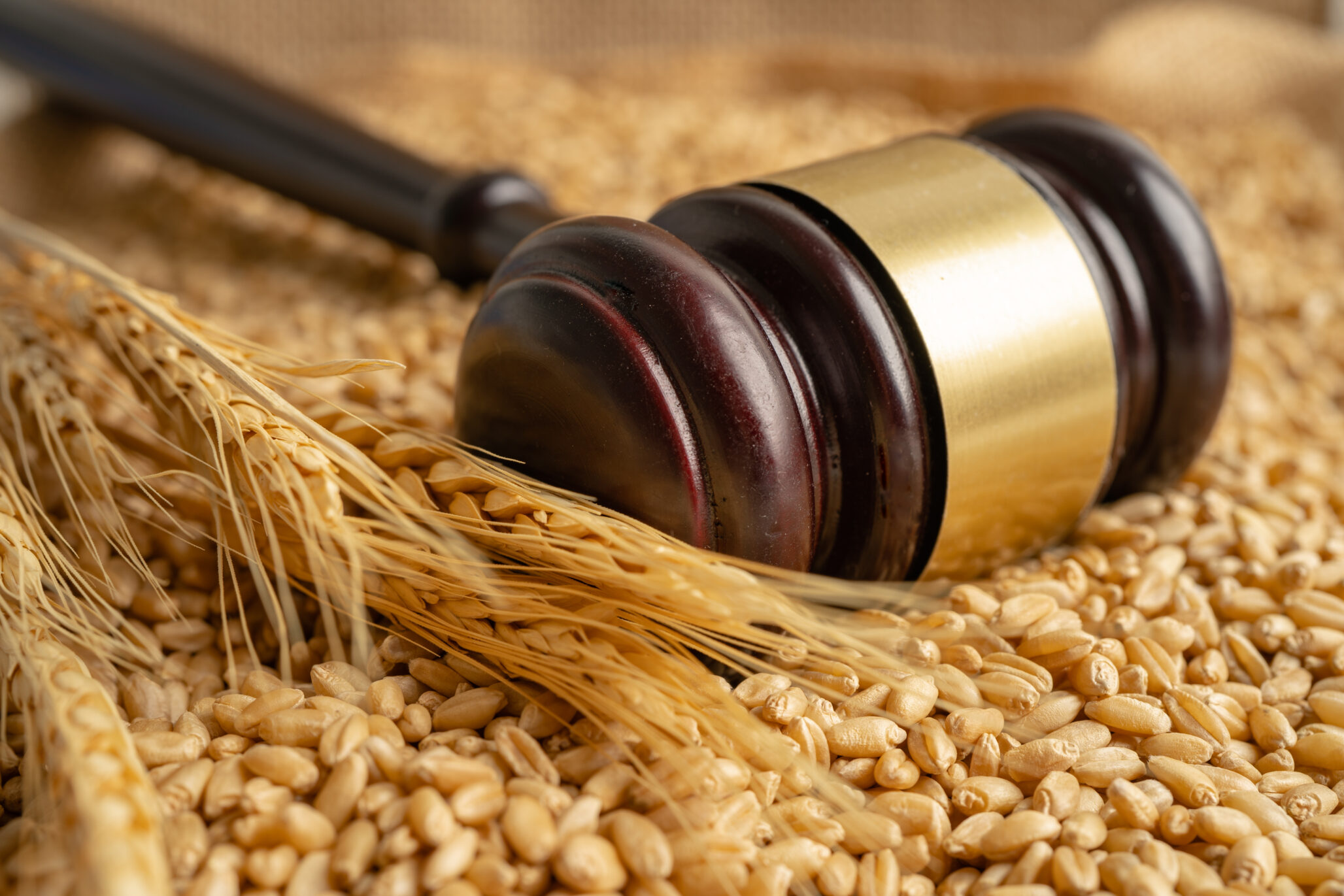In recent years, many position papers, strategies and guidelines have been adopted at global, regional and national levels, all of which aim to promote agrobiodiversity. There is a consensus that we should conserve crop diversity and increase its sustainable use to:
- preserve genetic resources for future breeding and direct use – our insurance for the future
- increase diversity in the fields to improve the resilience and adaptability of our agriculture – a crucial tool to support sustainable agroecosystems
- increase diversity on our plates – our recipe for a healthy diet
Now it is time to turn the letter into action. The upcoming reform of the EU seed legislation needs to support these goals in addition to the historical target to provide seed quality and guarantee varietal identity for the farmers who choose so.
The goals that have been set
The International Treaty for Plant Genetic Resources for Food and Agriculture was ratified by the European Union back in 2004. Its Article 6 on Sustainable Use of Plant Genetic Resources reads like a recipe book for a progressive seed law:
“Contracting Parties shall develop and maintain appropriate policy and legal measures that promote the sustainable use of plant genetic resources for food and agriculture.” This could include “agricultural policies that promote […] the development and maintenance of diverse farming systems that enhance the sustainable use of agricultural biological diversity”; “strengthening research which enhances and conserves biological diversity by maximizing intra- and inter-specific variation for the benefit of farmers”; “promoting […] the expanded use of local and locally adapted crops, varieties and underutilized species”; and […] adjusting breeding strategies and regulations concerning variety release and seed distribution.[1]

The EU has taken up the ball and has developed a Biodiversity Strategy which recognizes farmers’ role in preserving biodiversity as “guardians of our land”. […] “The decline of genetic diversity must also be reversed, including by facilitating the use of traditional varieties of crops and breeds. This would also bring health benefits through more varied and nutritious diets. The Commission is considering the revision of marketing rules for traditional crop varieties to contribute to their conservation and sustainable use.”[2] This goal has also found its way into the Farm to Fork Strategy, where crop diversity is mentioned in measures linked to ensure more sustainable food production.[3]
The task now is to implement these strategies in the upcoming seed law reform.
A Common Vision for Cultivated Plant Diversity
As a starting point for the upcoming reform of the legislation on the marketing of plant reproductive material (PRM), seed savers (including ProSpecieRara and Arche Noah), gardeners, farmers, breeders, seed suppliers, food producers, and civil society organizations have developed a Common Vision for Crop Diversity[4].

The vision notes that “the current regulatory framework is failing those farmers and growers who operate outside industrial agriculture, for example farmers working under agro-ecological or certified organic conditions, farmers who want to work with open pollinated seeds, and/or farmers working in small acreages with close ties to final consumers, as they simply lack access to sufficient seeds adapted to their needs and local production environments.” and that “diversity is ultimately still limited to bureaucratic niches, each of which comes with its own set of restrictions, and the complexity of the framework itself is prohibitive for many smaller actors. […] A reformed seed marketing legislation must support, rather than discriminate against, intra-specific and intra-varietal diversity, thereby supporting adaptation to climate change, the transition to a more climate and environmentally friendly agriculture, local seed and food production, farmers’ rights, and healthier diets.”
The broad coalition found consensus for general principles that should find echo in the new legislation. For example:
- The scope of the seed marketing legislation should be delineated by a strict definition of seed marketing limited to commercial activities targeting professional seed users. The seed marketing legislation should not in any way regulate the on farm and in garden conservation, sustainable use and dynamic management of cultivated plant diversity, including seed exchanges between farmers and gardeners that are either for free or only charge reimbursement of expenses. There should be no register of operators.
- The seed marketing legislation should provide freedom of choice for farmers and growers, both regarding seeds (species, varieties, populations) and regarding production standards.
- Registration based on DUS and VCU testing, when chosen, needs to be adapted and proportionate to the needs and realities of the diverse range of breeders, developers, and maintainers, as well as their customers.
- The legislation should ensure transparency over breeding methods and intellectual property rights for all seeds placed on the market.
Our Reply to the Inception Impact Assessment by the Commission
At the end of April this year, the European Commission published a study on options for modernizing the seed legislation. It describes PRM as the beginning of the agricultural production chain and thus essential for the availability of diverse, healthy, and high-quality food. The study acknowledges that the current legislation hinders the conservation and sustainable use of plant genetic resources. Building-up on it, the European Commission published in June 2021 the inception impact assessment on the seed marketing reform.[5] Arche Noah and ProSpecieRara understand the Commission’s outline as a realistic chance for a far-reaching change that makes more space for cultivated plant diversity. However, this positive change will only be possible if the right conclusions are drawn from the impact assessment and option 2 is set as the basis for the seed law reform.
The Commission has identified the right, essential problems:
- Divergent implementation practices and non-level playing field
The Commission acknowledges that “[s]ome Directives do not have specific instruments for protecting conservation varieties” and that “[t]he definitions of ‘marketing’ and ‘operator’ are ambiguous in certain Directives or missing in others and leave it open if the activities of seed conservation networks are covered by the PRM legislation or not, and -if so- to what extent.” The Commission especially recognises that “[a]mateur gardeners have different uses and motivations compared to professional users and this raises the question if PRM marketed to amateur gardeners should be subject to the same rules as PRM marketed to professional users.”
- Arche Noah and ProSpecieRara welcome that the Commission has recognised those essential problems. Seed conservation networks (which could include farmers and gardeners) work following a different aim and with very different structures than the commercial seed industry, as they generally operate as decentralised networks of seed guardians, with differing levels of central coordination that can include capacity-building, training, awareness-raising and advocacy activities, and also the sale of seeds and young plants. They are crucial for the conservation and sustainable use of plant genetic resources. Their work should in no way be restricted – they should therefore be out of the scope of the legislation.
- Furthermore, the amateur gardeners’ market is very different than the industrial crop production model and does not require the strict criteria and guarantees stemming from the seed marketing legislation. It should be out of the scope so that conservation work can be done without barriers. Pre-marketing DUS tests and seed lot certification make no sense for non-professional users. They need and look for other criteria when buying seeds for their gardens or pots.
- Legislation prevents innovation and use of new technologies and adaptation to policy developments
The Commission notes that the current VCU/DUS “are not yet adapted to the needs of organic varieties suitable for organic cultivation.” And they recognise further: “When the requirements and costs for registering conservation and amateur varieties are identical to those of new varieties, there may be little incentive for seed conservation networks and other operators active in this domain to register conservation and amateur varieties, […]. In addition, the current legislation restricts increasing consumer demands for these traditional and local varieties due to production limits imposed by the existing legislation.”
- ProSpecieRara and Arche Noah fully support adapted DUS and VCU test for organic varieties and believe that the introduction of heterogeneous material (OHM) and organic varieties in the new Organic Regulation were ground-breaking steppingstones that should pave the way forward for the seed marketing legislation. The mindset of the OHM notification regime should be used for inspiration in the creation of more space for different types of plant material catering to specific needs in the EU. To not further restrict the increasing demand for traditional and local varieties by consumers and farmers and align lighter requirements across the EU, there should be one lighter notification regime for diversity varieties without production or geographical limits.
[tweetshare tweet=”ProSpecieRara and Arche Noah fully support adapted DUS and VCU test for organic varieties” username=”eyJtZDUiOnRydWV9″]
The commission then outlines four possible policy choices. Considering the severe environmental crisis which we face, the only constructive and future-oriented option is option 2: Alignment of definitions and structure of the legislation while matching needs of professional sector, seed conservation networks and users.
This option would exempt seed conservation networks and marketing to amateur gardeners from the scope of application of the legislation. According to the Commission this would promote diversity and boost the marketing of more local and traditional products. This is crucial to stop the further decline of agrobiodiversity in the fields and gardens. Option 2 also foresees the creation of a framework for the exchange in kind between farmers of plant reproductive material. The exchange between farmers is crucial for the sustainable use of plant genetic resources. Therefore, farmers need to be allowed to exchange and sell seeds they have produced themselves directly to other farmers without having to comply with the seed marketing legislation. As such an adaptation of the seed legislation has no influence on the restrictions that apply to seed protected by Plant Breeders Rights, it would therefore be limited to the exchange and sale of PRMs not protected by intellectual property rights. Nevertheless, we see this as an important step towards the implementation of the UN Declaration on the Rights of Peasants (UNDROP) and the right to seed contained therein.
As a general objective the Commission proposes to introduce “lighter requirements for conservation varieties for all PRM sectors and, where appropriate, for amateur varieties”. For Arche Noah and ProSpecieRara this is a crucial amendment. Lighter requirements are indeed needed, like it is the case today in Switzerland through “niche varieties”. The existing directive on amateur and conservation varieties shall be replaced by a new uniform derogatory regime for “diversity varieties” which shall apply to all types of crops. The notification of “diversity varieties” should be based only on a description of the variety. There should be no DUS/VCU testing and no certification for “diversity varieties”. There should be no production limits for the marketing of “diversity varieties” ´so the increasing consumer demand for traditional and local varieties is no longer restricted. Furthermore, changing climatic conditions and with it, the needed adaptation to climate change make it clear, that there should be no more restriction to a region of origin, which in the long run would mean endangering the conservation of many varieties.
Conclusion
The upcoming seed law reform is THE opportunity to implement agreed goals on agrobiodiversity and sustainable agroecosystems. In its impact assessment, the Commission mentions important building blocks to do this, which are supported by ProSpecieRara and Arche Noah:
- seed conservation networks and marketing to amateur gardeners out of the scope,
- framework for the exchange between farmers,
- adapted DUS and VCU tests for organic varieties,
- better, lighter regime for diversity varieties.
The structure of the future will therefore have three important segments:
- A segment of seed conservation networks (including farmers and gardeners being part of these networks) and the sales to amateur gardeners which will be out of the scope of the seed legislation
- A segment of diversity and organic farmers which benefit from significantly simplified rules for production and marketing of PRM
- A segment of farmers who are involved in industrial production and attach great importance to the current standards of homogeneity and uniformity.
The goal of the reform must be that the new legislation is tailored to the needs of the different actors that are an integral part of the EU seed landscape. When accessing PRM, individual actors, whether professional or non-professional, must always know what kind of seed they are dealing with. For this, transparency is crucial. In essence, we should no longer prohibit or restrict the exchange and trade of diverse PRM – but rather clearly disclose the nature of them. We believe that such a system will serve everyone. To prevent the reform from failing as it did in 2013, and to develop a future-oriented system we are prepared to engage in dialogue with the industry and all other stakeholders.
Editor’s Note: Magdalena Prieler is Seed Policy Officer at Arche Noah and François Meienberg is Project Manager Politics at ProSpecieRara.
[1] Treaty for Plant Genetic Resources for Food and Agriculture
[2] https://eur-lex.europa.eu/legal-content/EN/TXT/?qid=1590574123338&uri=CELEX:52020DC0380
[3] https://eur-lex.europa.eu/legal-content/EN/TXT/?qid=1590404602495&uri=CELEX%3A52020DC0381
[4] https://www.arche-noah.at/files/joint_letter_to_the_europaen_commision.pdf
[5] https://ec.europa.eu/info/law/better-regulation/have-your-say/initiatives/13083-Revision-of-the-plant-and-forest-reproductive-material-legislation_en
Editor’s Note: Magdalena Prieler is Seed Policy Officer at Arche Noah and François Meienberg is Project Manager Politics at ProSpecieRara.











